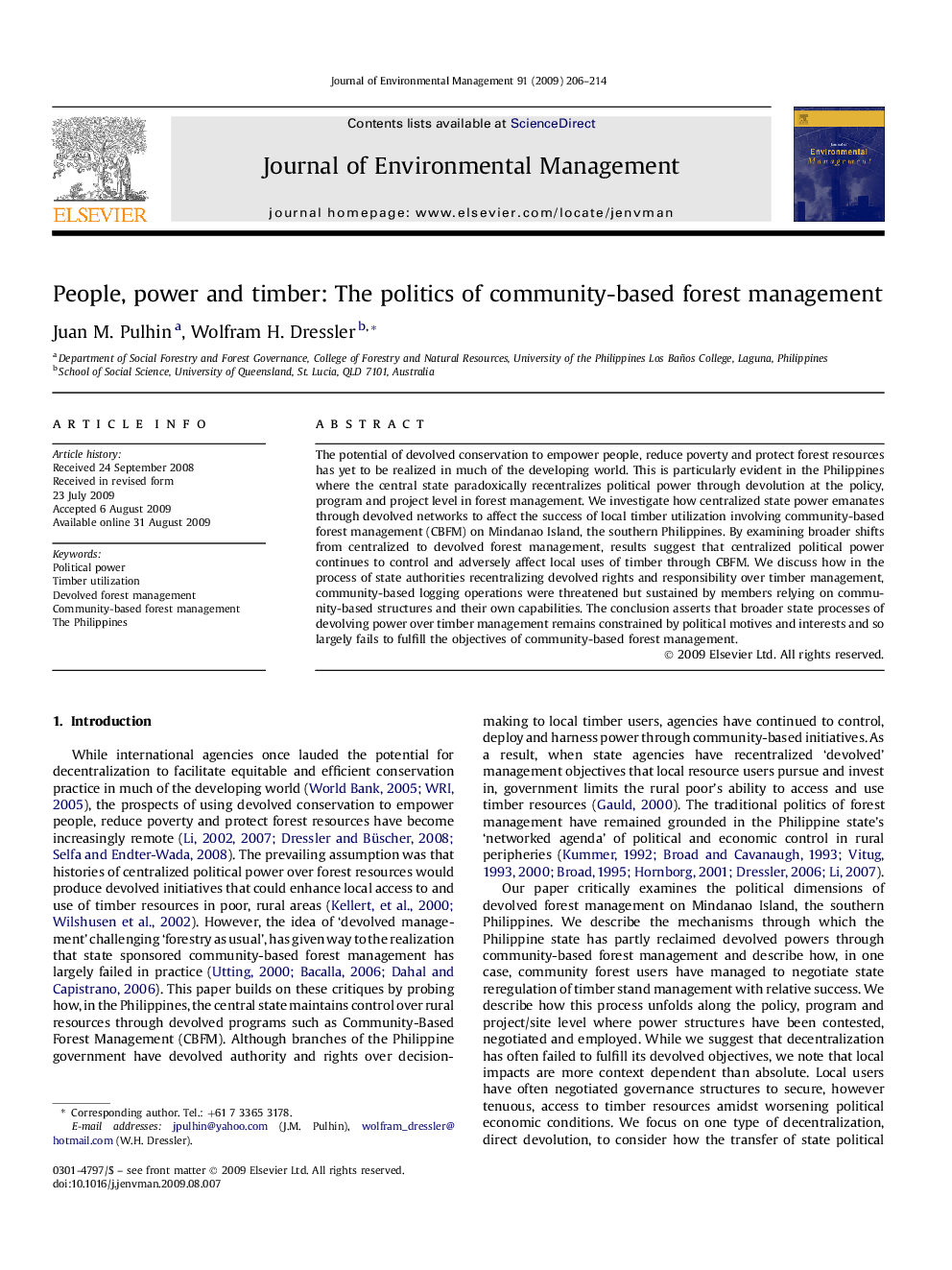| Article ID | Journal | Published Year | Pages | File Type |
|---|---|---|---|---|
| 1057257 | Journal of Environmental Management | 2009 | 9 Pages |
The potential of devolved conservation to empower people, reduce poverty and protect forest resources has yet to be realized in much of the developing world. This is particularly evident in the Philippines where the central state paradoxically recentralizes political power through devolution at the policy, program and project level in forest management. We investigate how centralized state power emanates through devolved networks to affect the success of local timber utilization involving community-based forest management (CBFM) on Mindanao Island, the southern Philippines. By examining broader shifts from centralized to devolved forest management, results suggest that centralized political power continues to control and adversely affect local uses of timber through CBFM. We discuss how in the process of state authorities recentralizing devolved rights and responsibility over timber management, community-based logging operations were threatened but sustained by members relying on community-based structures and their own capabilities. The conclusion asserts that broader state processes of devolving power over timber management remains constrained by political motives and interests and so largely fails to fulfill the objectives of community-based forest management.
